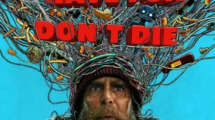Captivating Lives: How Biographies Reveal the Human Experience
Introduction
Biographies have long been a captivating genre, offering insights into the lives of noteworthy individuals. They serve as windows into the human experience, capturing the highs and lows, triumphs and struggles, of those who have shaped our world. In this article, we will explore the significance of biographies, the impact they have on readers, and how they allow us to glean deeper understandings of our own lives. Through the lens of notable figures from various fields, we will examine how their stories resonate with universal themes such as resilience, creativity, and the search for identity.
The Power of Narrative
Narrative is a powerful tool in human culture. It is how we transmit knowledge, values, and experiences. Biographies are a specific form of narrative that distills a person’s life into a coherent story. They invite readers to walk alongside their subjects, experiencing their trials and triumphs in a visceral way.
The Construct of Identity
Biographies often explore how identity is constructed. Through the stories of historical and contemporary figures, we see how personal circumstances, societal expectations, and cultural norms intersect to shape who we become. For instance, Maya Angelou’s autobiography, "I Know Why the Caged Bird Sings," vividly illustrates how her upbringing and experiences of racism influenced her identity. Angelou’s narrative not only recounts her life but also serves as a commentary on broader social issues, inviting readers to reflect on their own identities in complex ways[^1].
Universal Themes
Biographies often reveal universal themes, such as love, loss, ambition, and conflict. Consider the life of Vincent van Gogh. While his struggles with mental health and his quest for artistic recognition are specific to him, they resonate with anyone who has faced rejection or sought to understand their purpose[^2]. Van Gogh’s letters offer a glimpse into his tumultuous mind, and through his story, readers can explore the fragility of creativity and the universal longing for acceptance.
The Influence of Context
The context in which an individual lives plays a fundamental role in shaping their experiences and choices. Biographies provide rich insights into historical and cultural settings, allowing readers to understand how these contexts influence personal narratives.
Historical Framework
Take the life of Nelson Mandela as an example. His biography illustrates not only his personal struggles but also the socio-political landscape of apartheid South Africa. Understanding Mandela’s story requires a comprehension of the systemic injustices that defined his era. His journey from prisoner to president reflects not only his resilience but also the power of collective activism in effecting change[^3].
Cultural Influence
Cultural contexts also inform personal narratives. Frida Kahlo, a Mexican painter known for her vivid self-portraits, used her art to explore her identity as a woman in a patriarchal society. Her life story intertwines with themes of gender, culture, and illness, allowing readers to engage with her experiences on multiple levels[^4]. Biographies like Kahlo’s shed light on how cultural narratives shape individual identities.
Emotional Connection
One of the most compelling elements of biographies is their ability to evoke empathy and connection. Readers often find themselves relating to the emotional struggles and victories of the subjects, lending a personal dimension to their understanding of history.
The Human Condition
The raw portrayal of human experiences, especially moments of vulnerability, resonates deeply. Consider Anne Frank’s "The Diary of a Young Girl." This poignant account of a Jewish girl hiding from the Nazis captures the fear, hope, and longing for freedom that accompany her confined existence. Through her words, readers not only learn about the historical context of World War II but also connect with the universal yearning for safety and belonging[^5].
Relatability and Inspiration
Biographies also serve as a source of inspiration. The life of Helen Keller is a testament to overcoming adversity. Her journey from being deaf and blind to becoming an influential author and activist inspires countless individuals to pursue their own goals, regardless of the hurdles in their path[^6]. Keller’s perseverance and determination encourage readers to reflect on their own challenges and seek empowerment.
The Intersection of Art and Life
Many biographies delve into the relationship between art and life, exploring how personal narratives influence creative expression. Artists often channel their experiences into their work, creating a dialogue between their personal lives and their artistic endeavors.
Creative Process
The life of Virginia Woolf exemplifies this connection. In her biography, we see how her struggles with mental health influenced her writing style and thematic choices. Woolf’s stream-of-consciousness technique mirrors her internal struggles, offering readers a glimpse into her psyche[^7]. Her life story enriches our understanding of her literary contributions, illustrating how biography can illuminate the creative process.
Reflection of Society
Walter Benjamin’s notion of the "aura" in art suggests that the personal history of the artist adds depth to the artwork. Biographies enhance this aura by providing context, allowing viewers to appreciate the socio-political influences that shaped an artist’s work. For instance, Basquiat’s life as a Black artist navigating the predominantly white art world offers critical insights into race, class, and identity in contemporary art[^8]. Understanding his biography deepens our engagement with his artwork.
Biographical Critique
While biographies can offer profound insights, they are also subject to critique. The way an author portrays a subject can influence readers’ perceptions and create a particular narrative about a person’s life.
Subjectivity in Storytelling
Every biography is subjective, reflecting the author’s interpretation of events. Biographers must navigate the delicate balance between fact and storytelling. This subjectivity poses questions about authenticity and the ethical considerations of representing another’s life. Consider the ongoing discussions surrounding the representation of historical figures. Scholarly critiques often address whether biography serves to uphold or challenge prevailing narratives[^9].
The Role of the Biographer
The biographer’s perspective also plays a critical role in shaping the narrative. Take the recent biographical works on figures like Steve Jobs. These narratives vary widely based on varying perspectives of his personality and contributions. For some, he is a visionarian, while for others, he is a controversial figure whose leadership style was problematic. Engaging critically with such biographies prompts readers to question who gets to shape such narratives and why[^10].
The Digital Age of Biography
The advent of digital technology has transformed the landscape of biography. With the emergence of social media and online platforms, the way lives are documented and shared has evolved significantly.
Accessibility and Engagement
In the digital age, biographies are more accessible than ever. Platforms like YouTube and podcasts feature biographies in various formats, allowing for diverse expressions of lives. This democratization of storytelling invites greater engagement, as audiences can interact with narratives like never before[^11].
The Rise of Memoirs
Moreover, the rise of personal memoirs has blurred the lines between biography and autobiography. Many public figures now share their life stories through social media, offering unfiltered glimpses into their lives. This level of transparency can both enhance connection and provoke questions about authenticity and spectacle[^12].
The Future of Biographies
As we move forward, the genre of biography is bound to evolve. In a world increasingly focused on individual narratives, we can anticipate shifts in how stories are told and consumed.
Diverse Narratives
The demand for diverse narratives continues to grow. Readers are increasingly interested in biographies that reflect a wider range of experiences, particularly those from marginalized communities. This emphasis on inclusivity invites a richer understanding of the human experience and broader cultural perspectives[^13].
Interactive Storytelling
The future may also see more interactive and immersive forms of biography, utilizing technologies like virtual reality to create experiential narratives. These innovative formats could allow readers to engage with historical events and figures in transformative ways, fostering deeper connections to the past and a more nuanced understanding of individual lives[^14].
Conclusion
Biographies remain a vital means of exploring the human experience. They serve as mirrors reflecting our struggles, triumphs, and complexities, inviting readers to connect deeply with the lives of others. Through narratives that encompass history, culture, and the personal journey, biographies enrich our understanding of identity while illuminating universal themes that resonate across time and place.
These captivating lives, immortalized in print, inspire us not merely to know the past but to reflect on our own narratives. As we continue to explore the lives of those who came before us, may we carry forward the lessons they impart—embracing resilience, creativity, and the unyielding quest for identity in our own lives.
[^1]: Angelou, Maya. "I Know Why the Caged Bird Sings." Random House, 1969. [^2]: Van Gogh, Vincent. "The Letters of Vincent van Gogh." Penguin Classics, 2009. [^3]: Mandela, Nelson. "Long Walk to Freedom." Little, Brown and Company, 1994. [^4]: Kahlo, Frida. "The Diary of Frida Kahlo: An Intimate Self-Portrait." HarperCollins, 1995. [^5]: Frank, Anne. "The Diary of a Young Girl." Bantam, 1993. [^6]: Keller, Helen. "The Story of My Life." Dover Publications, 1996. [^7]: Woolf, Virginia. "The Waves." Harvest Books, 2005. [^8]: Benjamin, Walter. "The Work of Art in the Age of Mechanical Reproduction." Penguin, 2008. [^9]: Eakin, Paul John. "Living Autobiographically: How We Create Meaning in Story, Life, and Art." Cornell University Press, 2008. [^10]: Isaacson, Walter. "Steve Jobs." Simon & Schuster, 2011. [^11]: Rosen, Christine. "The Making of a Digital Biographer." Online Journalism Review, 2021. [^12]: Hesse, Monica. "The Culture of Memoir: How the 21st Century Explores Life Stories." The Washington Post, 2021. [^13]: Hartman, Saidiya. "Wayward Lives, Beautiful Experiments: Intimate Histories of Social Upheaval." Norton, 2019. [^14]: Manovich, Lev. "Software Takes Command." Bloomsbury, 2013.





















Add Comment